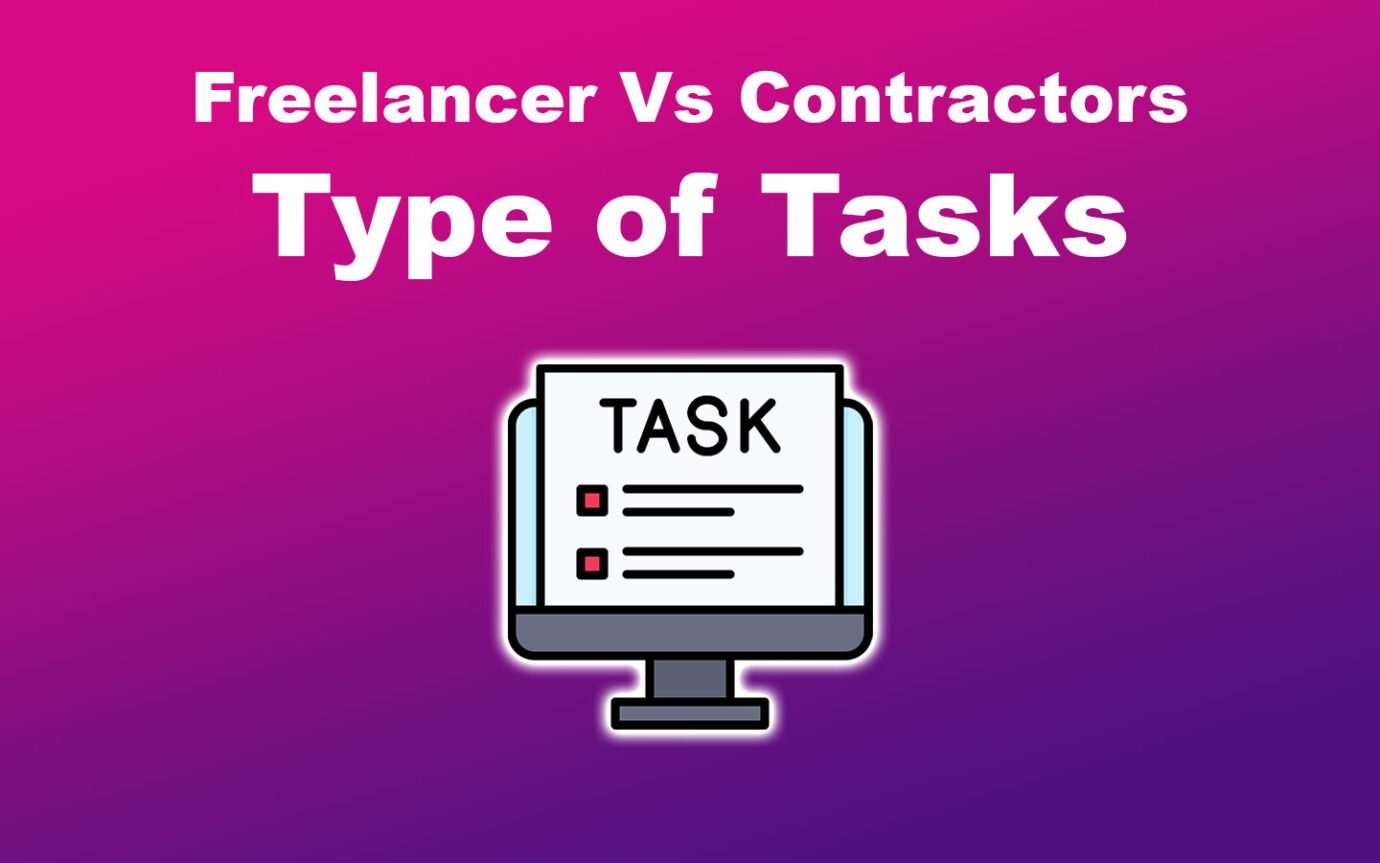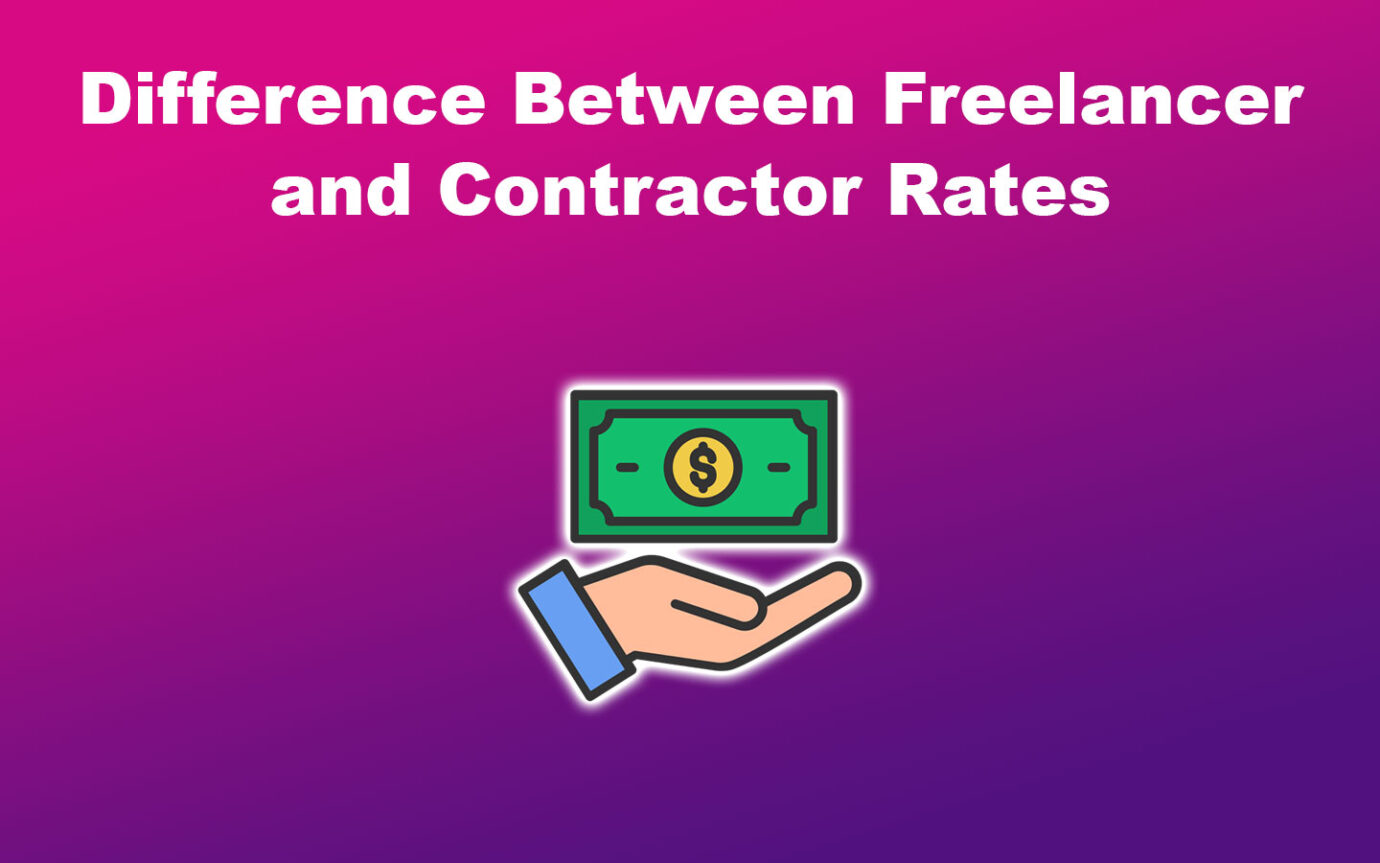Freelancers and contractors are different from traditional employees but very similar on paper. Many remote workers aren’t sure under which umbrella they fall between the two. On the other hand, employers may wonder which is better when comparing freelance vs. contractor.
Keep reading to learn the difference between freelance and independent contractors. But first, let’s define each term.

What Is a Freelancer?
A freelancer is a self-employed individual working on a call, one-time, or project basis and can set their rates. Freelances work off-site, under their schedule, with one or multiple clients. Most freelance projects are short-term and part-time with little to no legalities involved.
Freelancers are generally a one-person business responsible for their insurance and taxes. Examples of freelancers include graphic designers, writers, and business consultants.
Understand the definition and measure of independent workforce from Linkedin.
What Is a Contractor?

A contractor is a self-employed worker who takes on projects on a contract basis. Unlike freelancers, contractors can work on the employers’ premises and use company equipment. They are more likely to work full-time as a temporary employee that may become permanent.
Contractors still have the freedom to work multiple jobs. They are also responsible for their insurance and taxes. Some examples of contract work include accountants with an independent practice, data analysts, and delivery drivers.
Learn how to become a successful contractor from Linkedin.
What Is the Difference Between Freelance and Contract?
The differences between freelance and contract are working schedules, durations, and types of tasks. The mode of accepting clients, the number of tasks freelancers and contractors can handle, and the legal framework binding them also differ.
Below is an in-depth look at the difference between freelance and contractor work.
1. Working Schedules
Freelancers have the freedom to set their schedules. Since freelancers work at their convenience, it may be hard for employers to track the progress of a project.
Similar to freelancers, contractors can choose when they work. However, in some instances, contractors must follow an organization’s timeline, giving them less control over their schedule.
2. Working Durations
Freelancers work on shorter projects compared to contracts. Most companies hire freelancers for single projects. For example, an organization may hire a software developer to create an app.
Contracts span for longer periods, typically for at least three months. Also, contracts have a more defined timeline compared to freelancing.
3. Type of Tasks

Contract jobs are mostly recurring tasks. These include managing teams, data analysis, or routine system repairs.
On the contrary, freelance tasks involve irregular projects. Companies prefer outsourcing non-recurring duties to freelancers because they cannot control their working hours.
4. Accepting Clients
Freelancers accept and work with multiple clients at a time. Since freelance projects run for a shorter period, it is easier for freelancers to juggle several clients at once.
Theoretically, contractors can also work with numerous clients. However, contractors tend to have fewer or even single clients because contract jobs are complex and longer. Also, sometimes, contracts require workers to stick to certain working hours.
If you’re running a business and you want to hire freelancers but don’t know how they accept payment, check out this article about how to pay foreign freelancers.
5. Legal Framework
A freelancer determines the terms of a freelance working relationship. Even though some companies require freelancers to sign a contract, it may not be rigid and only dictate simple things like payment and work scope.
As the name suggests, contractors are bound by contracts signed by both parties (employers and workers). The contracts include many stipulations, including legal clauses and what actions each party should take in case of unexpected circumstances.
6. Taxes and Benefits
Both contractors and freelancers handle their taxes according to the laws of the country they reside in. This is because the two job descriptions fall under self-employment.
Additionally, freelancers and contractors aren’t entitled to any perks from employers. Neither do they get any employment rights. Nonetheless, from time to time, you may get a bonus out of your employer’s generosity.
Learn more about freelance vs contractor work on Upwork.
What Is the Difference Between Freelance and Contract Rates?

The difference between freelance and contract rates is freelancers are less expensive. Since freelancers can work for different clients simultaneously, they tend to accept lesser payment. Contract projects are longer and require more commitment, hence costing more.
When discussing freelance vs contractor costs, the number of clients one can work with heavily influences the rates. However, some freelancers can be expensive, depending on the nature of the job.
Discover more differences between freelancers vs independent contractors from Indeed.
Is It Better to Be an Independent Contractor or a Self-Employed Freelancer?
It is better to be a self-employed freelancer than an independent contractor because of freelancing’s flexibility. Self-employment allows you to work with multiple clients, thus increasing your income streams. Independent contracting is better if you’re interested in long-term projects.
For employers, the choice between self-employed freelance vs independent contractors depends on the length of a project and the model of your business.
If you want flexible talent with fewer risks and the ability to scale down your workforce easily, opt for self-employed workers (freelancers).
But, if you prefer expanding your team with global remote talent with a full-time work model, hire independent contractors.
Whether you’re hiring a freelancer or contractor, it’s important to learn how to spot virtual assistant scams when looking for employees.
There Is a Difference Between Freelance Vs. Contractor Work
Freelance vs contractor work differs in the rates, number of clients, work periods, and the nature of tasks. Generally, freelancers have more freedom compared to contractors.
When comparing self-employed freelance vs independent contractors, the two roles regarding taxes and benefits are similar. However, choosing which job description best suits you depends on your preferences.